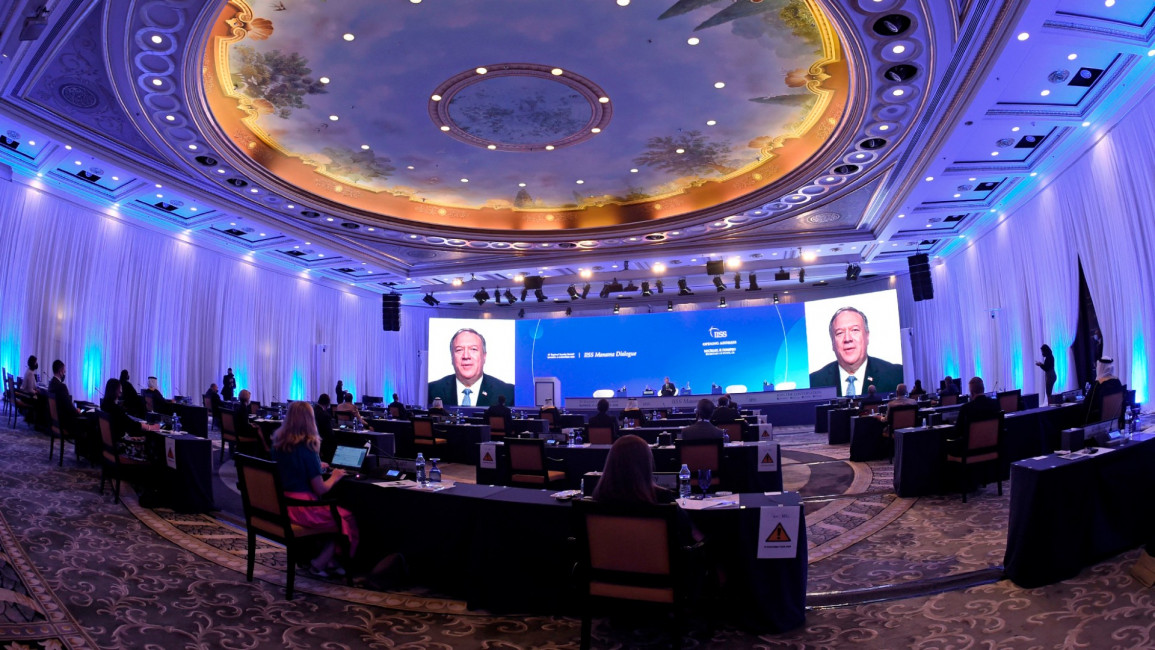Gulf nations, US signal progress to resolve Qatar crisis
Rivals Qatar and Saudi Arabia, along with neutral Oman and Kuwait, said Friday progress had been made towards resolving the Gulf crisis that has pitted a regional group of nations against Doha.
US Secretary of State Mike Pompeo said he hoped Washington could broker a resolution but cautioned he was "out of the prediction business in terms of timing", signalling a breakthrough may not be imminent.
Kuwait's Foreign Minister Sheikh Ahmed Nasser Al-Mohammed Al-Sabah, whose country is leading mediation efforts, said all sides had expressed keenness for a "final agreement" during recent "fruitful discussions", which have included the United States.
Qatar and Saudi Arabia's foreign ministers, along with Oman's foreign ministry, tweeted similarly worded statements thanking Kuwait and the US for their efforts to resolve the spat - but gave no details on the talks.
Saudi Arabia led its allies the United Arab Emirates, Bahrain and Egypt to cut ties with Qatar in June 2017, accusing it of backing radical Islamist movements and Iran, charges Doha denies.
They subsequently forced out Qataris residing in their countries, closed their airspace to Qatari aircraft and sealed their borders and ports, separating some mixed-nationality families.
"We have achieved certain progress at a certain point of time more than a year ago, and then things have slowed," Qatar's Foreign Minister Sheikh Mohammed bin Abdulrahman Al-Thani said at the Mediterranean Dialogues forum in Rome.
'Disentangling Qatar crisis'
"Right now, there are some movements that we hope will put an end (to) this crisis," he said, without giving details.
|
"We believe that Gulf unity is very important for the security of the region. This needless crisis needs to end based on mutual respect."
Later at the same event, being held virtually because of the novel coronavirus pandemic, Saudi Foreign Minister Prince Faisal bin Farhan Al-Saud said a "final agreement looks in reach".
"I am somewhat optimistic that we are close to finalising an agreement between all the nations in the dispute to come to a resolution we think will be satisfactory to all," he said.
Analysts had previously suggested that any breakthrough could only cover bilateral relations between Riyadh and Doha, excluding the UAE in particular, which has been the most vocal critic of Doha since the crisis began.
Prince Faisal's comments could mean that a broader thaw is on the horizon, but Abu Dhabi and Manama have yet to comment on the progress of efforts to resolve the crisis.
US President Donald Trump's son-in-law and senior adviser, Jared Kushner, is reported to have raised the Gulf crisis and pushed for progress towards ending the spat during a visit to Qatar on Wednesday.
Few details have been made public about Kushner's trip, which could have been his last chance to press diplomatic issues in the region that has been a focal point for the outgoing Trump administration. Kushner also visited leaders in Saudi Arabia as part of the trip.
"It's time for this conflict to be resolved," said Pompeo, who spoke via videoconference at the Manama Dialogue conference on regional security.
Saudi Arabia's closure of its airspace has forced Qatar Airways to fly over Iran, Riyadh's arch-rival and long-time adversary of Washington, reportedly paying Tehran $100 million annually to do so.
Air bridge?
US national security adviser Robert O'Brien said in November that allowing Qatari planes to fly over Saudi Arabia via an "air bridge" was a priority for the outgoing Trump administration.
In return, Qatar could agree to tone down the coverage of Saudi Arabia by its media, including the Al Jazeera broadcaster, according to an analyst, who declined to be named due to the issue's sensitivity.
Qatar has repeatedly said it is open to talks without preconditions, though Doha has not signalled publicly it would compromise on the 13 demands of the boycotting countries.
Regional analyst Michael Stephens said Kuwait's intervention was "a way of making sure they're not the ones blamed if it goes wrong - and of making sure the other side understands there's some goodwill there to keep going".
Qatar's Assistant Foreign Minister Lolwah Al-Khater told Al Jazeera that Kuwait's comments signalled the "beginning of the path to a solution, and it is an important and positive step".
The White House has ramped up its rhetoric against Iran as the Trump presidency draws to a close, having walked out of an international deal to rein in Tehran's nuclear programme in 2018.
US officials have said they hope President-elect Joe Biden will keep up Trump's policy of "maximum pressure" after he takes office in January.
Past mediation efforts to broker reconciliation between key US ally Qatar and its rivals have proved fruitless after apparent progress.



